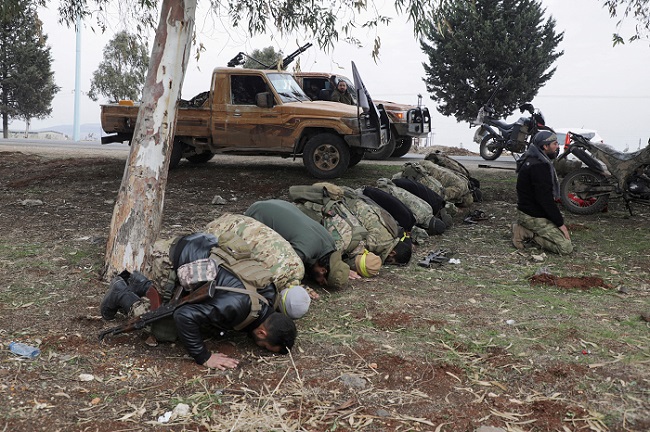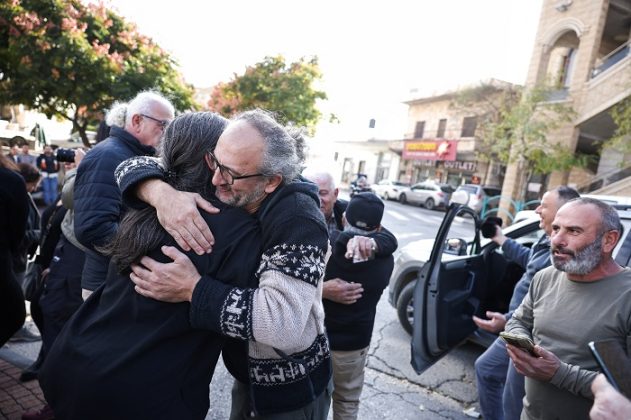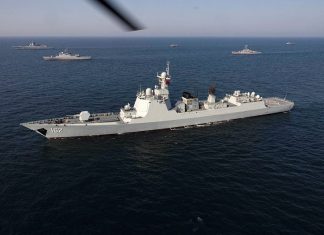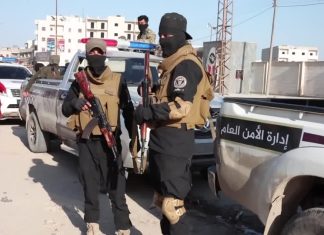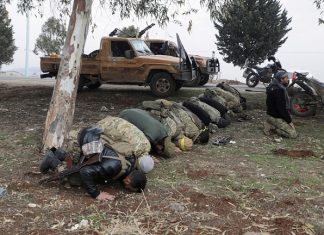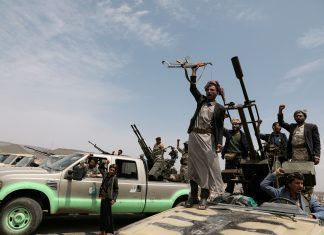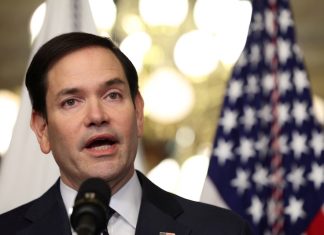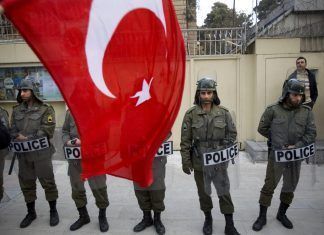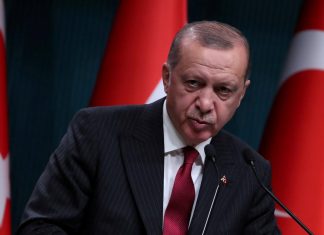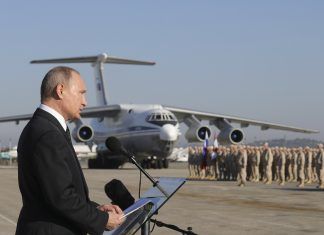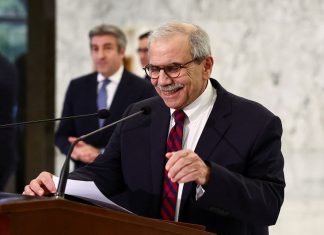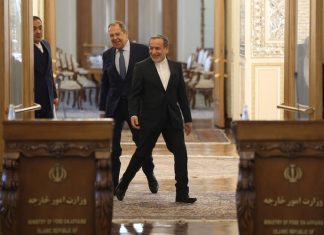By Suleiman Al-Khalidi and Timour Azhari
AMMAN/BEIRUT/CAIRO, Dec 8 (Reuters) – Syrian rebels declared President Bashar al-Assad’s ouster after seizing control of Damascus on Sunday, forcing him to flee and ending his family’s decades of rule after more than 13 years of civil war in a seismic moment for the Middle East.
The Islamist rebels also dealt a major blow to the influence of Russia and Iran in the heart of the region, key allies who propped up Assad during critical periods in the conflict.
Iran’s embassy was stormed by Syrian rebels following their capture of Damascus, Iran’s English-language Press TV reported on Sunday.
Syria’s army command notified officers on Sunday that Assad’s rule had ended, a Syrian officer who was informed of the move told Reuters.
But the military later said it was continuing operations against “terrorist groups” in the key cities of Hama and Homs and in the Deraa countryside.
Assad, who has not spoken in public since the sudden rebel advance a week ago, flew out of Damascus for an unknown destination earlier on Sunday, two senior army officers told Reuters, as rebels said they had entered the capital with no sign of army deployments.
His whereabouts now – and those of his wife Asma and their two children – remain unknown.
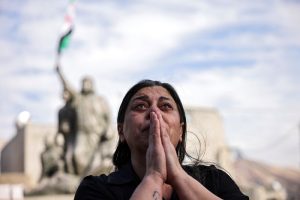
“We celebrate with the Syrian people the news of freeing our prisoners and releasing their chains and announcing the end of the era of injustice in Sednaya prison,” the rebels said, referring to a large jail on the outskirts of Damascus where the Syrian government detained thousands.
The Syrian rebel coalition said on Sunday it is continuing work to complete the transfer of power in Syria to a transitional governing body with full executive powers.
“The great Syrian revolution has moved from the stage of struggle to overthrow the Assad regime to the struggle to build a Syria together that befits the sacrifices of its people,” it added in a statement.
Thousands in cars and on foot congregated at a main square in Damascus waving and chanting “Freedom” from a half century of Assad family rule, witnesses said.
The collapse followed a shift in the balance of power in the Middle East after many leaders of Lebanon’s Iranian-backed Hezbollah group, a lynchpin of Assad’s battlefield force, were killed by Israel over the past two months. Russia, Assad’s other key ally, has been focused on the war in Ukraine.
Turkey-backed Syrian forces have taken control of some 80% of northern Syria’s Manbij area and are close to victory against Kurdish forces there, a Turkish security source said.
ORDERLY TRANSITION?
Syria’s civil war, which erupted in 2011 as an uprising against Assad’s rule, dragged in those and other outside powers, created space for jihadist militants to plot attacks around the world and sent millions of refugees into neighbouring states.
The frontlines were dormant for years. Then Islamists once affiliated with Al Qaeda suddenly burst into action, posing the biggest threat to Assad.
The pace of events has stunned Arab capitals and raised fears of a new wave of regional instability.
It marks a turning point for Syria, shattered by years of war which has turned cities to rubble, killed hundreds of thousands of people, and forced millions abroad as refugees.
Stabilising western areas of Syria captured in the rebels’ advance will be key. Western governments, which have shunned the Assad-led state for years, must decide how to deal with a new administration in which a globally designated terrorist group – Hayat Tahrir al-Sham (HTS) – looks set to have influence.
The United States will continue to maintain its presence in eastern Syria and will take measures necessary to prevent a resurgence of the Islamic State, Deputy Assistant Secretary of Defense for the Middle East Daniel Shapiro told the Manama Dialogue security conference in Bahrain’s capital on Sunday.
Before its defeat, Islamic State imposed a reign of terror in large swathes of Syria and Iraq.
At a conference in Doha, the Turkish Foreign Minister Hakan Fidan said “terrorist organisations” must not be allowed to take advantage of the situation in Syria and called on everyone to act with caution.
HTS, which spearheaded the rebel advances across western Syria, was formerly an al Qaeda affiliate known as the Nusra Front until its leader, Abu Mohammed al-Golani, severed ties with the global jihadist movement in 2016.
“The real question is how orderly will this transition be, and it seems quite clear that Golani is very eager for it to be an orderly one,” said Joshua Landis, a Syria expert and Director of the Center for Middle East Studies at the University of Oklahoma.
Golani will not want a repeat of the chaos that swept Iraq after U.S.-led forces toppled Saddam Hussein in 2003. “They are going to have to rebuild … they will need Europe and the U.S. to lift sanctions,” Landis said.
HTS is Syria’s strongest rebel group and some Syrians remain fearful it will impose draconian Islamist rule or instigate reprisals.
Countries like the United Arab Emirates and Egypt, both close U.S. allies, see Islamist militant groups as an existential threat, so HTS may face resistance from the regional powers.
In a conference in Manama, Anwar Gargash, the diplomatic advisor to the United Arab Emirates president, said a main concern for that country is “extremism and terrorism.”
He said Syria is not out of the woods yet, adding that he did not know whether or not Assad was in the UAE.
Gargash blamed Assad’s downfall on a failure of politics and said he had not used the ‘lifeline’ offered to him by various Arab countries before, including the UAE.
ASSAD WHEREABOUTS UNKNOWN
As Syrians expressed joy, Prime Minister Mohammad Ghazi al-Jalali called for free elections so Syrians can choose who they want.
But that would require a smooth transition in a country with complex competing interests, from Islamists to groups with links to the United States, Russia and Turkey.
Syrian rebels, for example, said they have started an attack on U.S.-backed Kurdish-led forces in the northern Syrian town of Manbij, according to a statement posted on Sunday but dated Dec. 7 (Saturday) on X by the Ministry of Defense of the Syrian Interim Government.
Jalali also said he had been in contact with rebel commander Abu Mohammed al-Golani to discuss managing the transitional period, marking a notable development in efforts to shape Syria’s political future.

